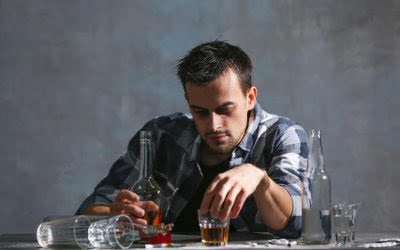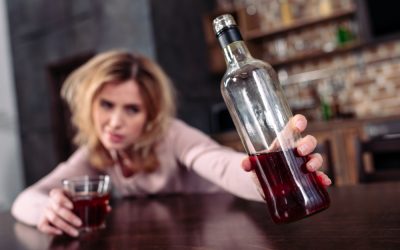They often lose control over the amount of alcohol they drink every day, and they end up consuming more alcohol to overcome the alcohol tolerance they build over time. If https://www.segredosdaserra.com.br/rappers-with-liquor-brands-beyond-music-see-how/ the person is violent or threatens violence, remove yourself and others, if possible, from the situation and call emergency services (911). Alcoholism is a leading cause of violence, crime, and public safety issues within communities.
Why Do I Crave Alcohol When I’m Angry?

However, it also reduces the activity of glutamate, an excitatory neurotransmitter. When he drinks, however, these suppressed feelings of rage tend to surface and are often expressed without any filter or restraint. Now let’s consider body language as well – it’s surprisingly revealing!
Scientific Explanation for Increased Anger in Some Drinkers
Affectionate drunks become increasingly loving and touchy-feely as they drink. They may hug friends frequently, express deep emotions, or become overly flirtatious. Angry drunks experience heightened aggression and irritability when intoxicated. Minor annoyances can trigger disproportionate reactions, leading to arguments or physical confrontations.
How Alcohol Changes Your Personality
Similarly, the presence of weapons or other environmental hazards can escalate conflicts that might otherwise remain verbal. Insomnia leads to sleep deprivation which can, in turn, lead to aggressive behavior as well. If you feel your loved one needs professional help to stop drinking, it is probably best to seek professional help. Offer support and assistance, but respect their personal space and boundaries. Avoid physical contact unless absolutely necessary for their safety. If the person is willing, provide them with water and encourage them to rest.
However, their behavior can be exhausting for friends and partners to handle. Setting drink limits and staying positive can countermood swings. Emotional drunks are on a rollercoaster ride of feelings when intoxicated.
- Others got a glass of juice mixed with a small amount of alcohol and with alcohol sprayed onto it to give the impression of a stronger drink.
- If they are experiencing signs of alcohol poisoning or seem to be in danger of choking on their vomit, it may be essential to rouse them.
- It often happens after an episode of binge drinking – consuming large amounts of alcohol in a short period.
- Moreover, productivity loss at workplaces is another major blow as employees grappling with such issues either miss work frequently or underperform.
- Certain personality traits have been linked to an increased likelihood of becoming aggressive when drinking.
Different treatment options work for different people, and that’s okay. However, if you are living with alcoholism and finding it difficult to get sober on your own, then having the right support system in place is imperative. You’ll find the answers to these questions may give you vital insight into your conduct when you’re intoxicated. Consider angry drunk psychology how you conducted yourself the last time you were under the influence. You should generally avoid getting into a situation where you are not able to recall what you did, what you said, or who you may have been around. But entering treatment is the best way to show the people you’ve harmed with your anger that you’ve made a commitment to change.
Signs of Alcohol Addiction
While the immediate effects of alcoholism on mental health are severe, it’s the long-term consequences that often prove most devastating. Even after achieving sobriety, many individuals find themselves grappling with persistent psychological issues that can impact their quality of life for years to come. Remember that you are not alone in this journey, and there is always help available. Don’t let being an angry drunk ruin your relationships and hinder your potential for a happy, healthy life. Contact us today to learn more about our highly effective addiction treatment options. Let us help you on your path toward recovery and a brighter future.
People With Higher Testosterone Are More Prone to Aggression

However, alcohol-related aggression does not occur in the majority of all chronic alcohol consumers or all alcohol-dependent individuals. Extreme happiness, or euphoria, is another common experience during drinking. As a positive, unalarming emotion and one that others Substance abuse are used to seeing, however, happiness isn’t on the radar as much as anger. Even if you don’t find drinking makes you aggressive, you might find drinking sometimes leads to an argument. So, why not cut down together and enjoy all the benefits that it can bring. If this is you, it’s a great time to change your life and get some help.
